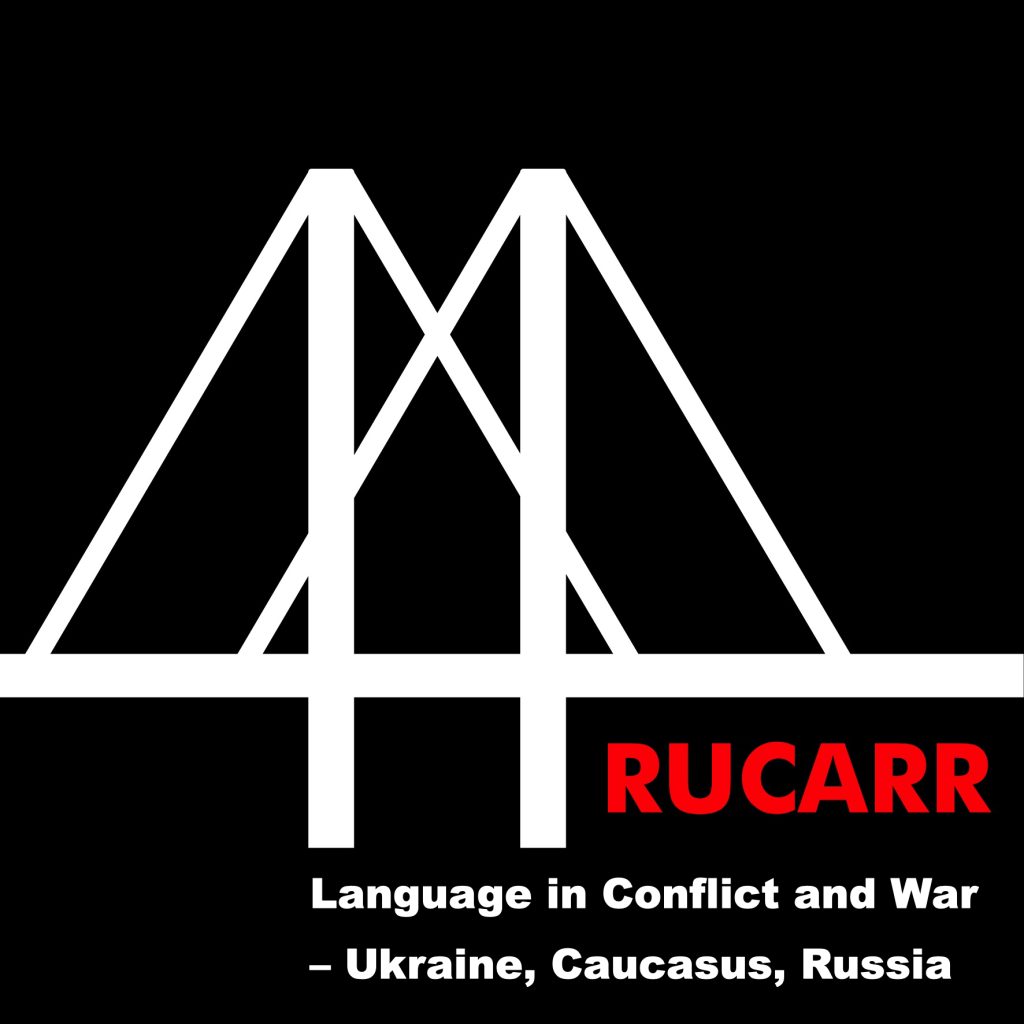Language in Conflict and War — Ukraine, Caucasus, Russia
Program, abstracts and sign-up link
 Current violent developments in the post-Soviet region bring to the forefront a number of issues reflecting the importance of language, being intertwined with conflict and war. Ukraine, Georgia and other multiethnic and multilingual states with shared legacy of Russian domination, struggle with partly similar challenges of integration or confrontation. Ethnic minorities in the Russian federation – Tatars, Circassians, Chechens, Dagestanis, Kalmucks and others – have a history of centuries of Russian colonization, which has included deportations and forced migration.
Current violent developments in the post-Soviet region bring to the forefront a number of issues reflecting the importance of language, being intertwined with conflict and war. Ukraine, Georgia and other multiethnic and multilingual states with shared legacy of Russian domination, struggle with partly similar challenges of integration or confrontation. Ethnic minorities in the Russian federation – Tatars, Circassians, Chechens, Dagestanis, Kalmucks and others – have a history of centuries of Russian colonization, which has included deportations and forced migration.
Thematic areas
Language is a salient marker of difference and could be used as a symbol of “the other”, “the enemy”. The politicization of the use of Ukrainian vs Russian in Ukraine is a vivid example. How have the status/use of Russian and Ukrainian and the identity and attitudes of speakers changed since the Russian invasion of Ukraine? Examples of other topics:
- Russian as the historically colonial language. Domination, inequality and language shift;
- The function and identity of Russian-speaking groups outside Russia (including “passportization”);
- Language situation of ethnic minorities in occupied/annexed zones;
- Language and forced migration;
- Language reveals who you are. Still in practice: test used to identify “the other”.
Call for papers to online panels on November 6
RUCARR welcomes papers focusing on language in conflict and war in Ukraine, the Caucasus, Russia and neighboring post-Soviet regions.
Welcome to submit your abstract proposal for the online zoom panels on November 6.
Language: English. Format: Max. 500 words including title, but excluding references (Harvard style). Font: Helvetica 11, spacing 1,15.
Deadline for submission September 27. Notification of acceptance by October 2.
Individual abstract proposals are welcome. However, proposals for sections of three thematically coherent papers are also welcome (in case you would like to do so, indicate the theme of the section when you submit the abstract proposal and who is coordinating the section).
Note that the online zoom panels on November 6 will not be in hybrid mode at Malmö University campus.
Symposium on November 7
Symposium at Malmö University campus and webinar with invited speakers:
- Nadiya Kiss, Justus Liebig University of Giessen, Germany: Languages at war: Language shift, contested language diversity and ambivalent enmity in Ukraine.
- Andrey Makarychev, Tartu University, Estonia: Estonian Russophones: A Biopolitical Story.
- Mariam Manjgaladze, Caucasus University, Tbilisi, Georgia: Issues of the Official Language Ecology in Contemporary Georgia
- Lidia Zhigunova, Tulane University, USA: Russia’s War on Indigenous Languages: The Case of Circassian in the North Caucasus.
Organizers
The event is organized by the research platform Russia, Ukraine and the Caucasus Regional Research (RUCARR), Faculty of Culture and Society, Malmö University. Contact email: rucarr@mau.se
Prof. Karina Vamling, Co-Director
Prof. Bo Petersson, Co-Director
Dr. Manana Kock Kobaidze, RUCARR researcher


